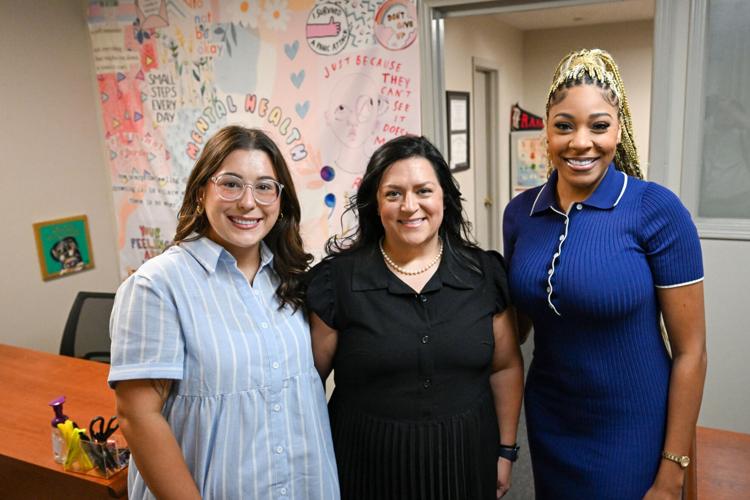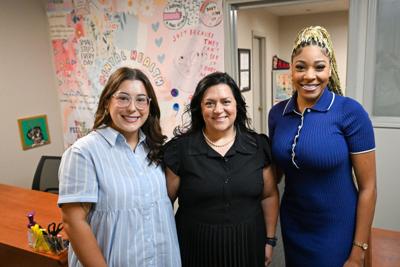Someone can be “tough on crime” and at the same time, without logical contradiction, also want to do preventive work addressing crime’s “root causes.” Social work and prosecutorial work need not be mutually exclusive, and indeed can be complementary.
Especially with nonviolent youthful offenders, an ounce of prevention can be worth a whole ton of prison doors.
That’s why it is so important that Louisiana, under oversight from the state Supreme Court, boasts programs across the state called Families In Need of Services, or FINS. Even better would be if more private-sector or nonprofit groups stepped up to partner with the FINS groups and multiply the FINS’ good work.
As reported by this paper’s Haley Miller, the FINS group for the parishes of West Baton Rouge, Iberville and Pointe Coupee is “full of success stories.” What FINS does is take “status offenders” — those who engage in small-scale offenses that by definition can be committed only by minors, such as truancy — and intervene to keep them out of the court system by leading them to counseling or to other resources that can help turn their lives around.
Plenty of families lack basic necessities such as running water, electricity or access to transportation. Gracie Bergeron, the director of that tri-parish FINS, told me that FINS will “create a service plan that has a list of providers” and also will provide mentorship and accompany children to meetings at school or at courts to help the children and their families feel comfortable with plans to get the kids on the right track.
Little things matter, she said: “How can you go to school if you don’t have clean clothes or you don’t have lights or even water to brush your teeth with in the morning?”
One of the wonderful outfits that partner with FINS is called GUMBO, for Global United Mission Benefiting Ourselves and Others. A multifaceted nonprofit run by disabled veteran Deborah Dickerson, GUMBO provides meals for the community’s needy while using kids referred by FINS as kitchen workers.

Quin Hillyer
“We give them a safe haven and we teach them skills they need: entrepreneurship skills and services skills,” Dickerson said. “And we also discuss a lot about what they would like, and who they would like, to become.”
This is exactly the sort of public-private cooperation that turns lives around, stopping kids from steps that often lead to criminality and instead helping them onto paths toward self-sufficiency and success. For example, FINS played a big role in helping the West Baton Rouge Parish Schools cut chronic absenteeism in half, from 18.7% to 9.8%, in just one year.
This model of addressing root causes works elsewhere in the country, too. I’ve written before of a program in Mobile, Ala., called NEST — Nurture children, Equip parents, Strengthen families and Transform communities — in which four- or five-person teams of volunteers help juvenile offenders, sometimes of somewhat more serious crimes than FINS deal with, get on the right track.
“We very quickly learned there was very little hope for helping the young person unless we address the environment in which they were living,” said Norman McCrummen, a conservative retired scholar and Presbyterian Minister who co-founded NEST with Mobile County juvenile court judge Edmond G. Naman.
“A team went to the house where one of our mentees lived and found that there were many thousands of roaches, no beds, one or two chairs, no electricity — so [we] quickly arranged to get electricity and within a week the house had been fumigated and furniture had been provided.”
Professional researchers from the University of South Alabama found that whereas the crime recidivism rate for youthful offenders nationally was 52% and for Mobile County as a whole a whopping 66%, for similarly situated NEST participants it was just 26%.
And NEST director Carole Grant says that among NEST participants in a new “life skills” program, an astonishing 97% passed current grade-level testing in schools.
I mention NEST’s remarkable success so as to suggest that with a little extra public money and with even greater engagement of public-private partnerships with wonderful groups such as GUMBO or other NEST-like groups that Louisianans might create, perhaps the state’s FINS groups could expand to cover not just “status offenders” but other more serious but still nondangerous youthful miscreants.
FINS, NEST and GUMBO all show that individual attention, combined with assistance addressing root causes, can keep teens away from trouble and help them, instead, thrive.
“Research shows,” said FINS’ Bergeron, “that if children have one positive person in their life, who is setting the standard and supporting them, it has all the impact in the world.”
The more support Louisiana gives to FINS, the more kids will keep their heads above turbulent waters.



